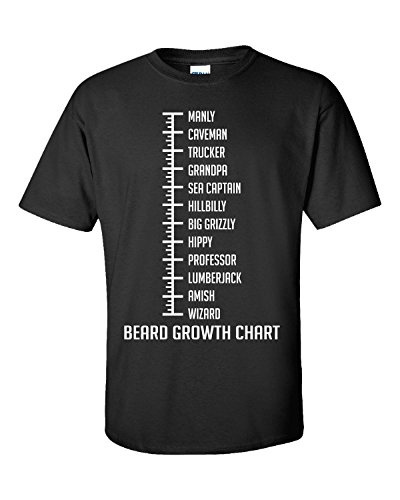As long as I’ve been alive, my Dad has had a full beard [1].
When I was a kid, this wasn’t terribly common. Over the years this has become surprisingly more common, and now the fact that his is closely trimmed is the uncommon part.
With the sudden increase in the popularity of beards, studying how people perceive bearded vs clean shaven men has gotten more popular. Some of this research is about how women perceive men with beards, and there’s actually a “peak beard” theory that suggests that women’s preferences for beards goes up as the number of men with beards goes down and vice versa.
This week though, someone decided to study a phenomena that has always fascinated me: small children’s reaction to men with beards. Watching my Dad (a father of 4 who is pretty good with kids) over the years, we have noted that kids do seem a little unnerved by the beard. Babies who have never met him seem to cry more often when handed to him, and toddlers seem more frightened of him. The immediacy of these reactions have always suggested that there’s something about his appearance that does it, and the beard is the obvious choice.
Well, some researchers must have had the same thought because a few weeks ago a paper “Children’s judgements [sic] of facial hair are influenced by biological
development and experience” was published that looks at children’s reactions to bearded men. The NPR write up that caught my eye is here, and it led with this line “Science has some bad news for the bearded: young children think you’re really, really unattractive.”. Ouch.
I went looking for the paper to see how true that was, and found that the results were not quite as promised (shocking!). The study had an interesting set up. They had 37 male volunteers get pictures taken of themselves clean shaven, then had them all grow a beard for the next 4-8 weeks and took another picture. This of course controls for any sort of selection bias, though to note the subjects were all of European decent. Children were then shown the two pictures of the same man and asked things like “which face looks best?” and “which face looks older?”. The results are here:

So basically the NPR lead in contained two slight distortions of the findings: kids never ranked people as “unattractive”, they just picked which face they thought looked best, and young kids actually weren’t the most down on beards, tweens were.
Interestingly, I did see a few people on Twitter note that their kids love their father with a beard, and it’s good to note the study actually looked at this too. The rankings used to make the graph above were done purely on preferences about strangers, but they did ask kids if they had a father with a beard. For at least some measures in some age groups, having exposure to beards made kids feel more positively about beards. For adults, having a father or acquaintances with beards in childhood resulted in finding beards more attractive in adulthood. It’s also good to note that the authors did use the Bonferri correction to account for multiple comparisons, so they were rigorous in looking for these associations.
Overall, some interesting findings. Based on the discussion, the working theory is that early on kids are mostly exposed to people with smooth faces (their peers, women) so they find smooth faces preferable. Apparently early adolescence is associated with an increased sensitivity to sex specific traits, which may be why the dip occurs at age 10-13. They didn’t report the gender breakdown so I don’t know if it’s girls or boys changing their preference, or both.
No word if anyone’s working on validating this scale:

[1] Well, this isn’t entirely true, there were two exceptions. Both times he looked radically different in a way that unnerved his family, but I was fascinated to note that some of his acquaintances/coworkers couldn’t figure out what was different. The beard covers about a third of his face. This is why eye witness testimony is so unreliable.
There seemed to be some initial anxiety when one of our newborn daughters saw my face–perhaps it looked upside-down, with the hair at the bottom and the bare skin at the top.
At any rate, I grew mutton-chops at the behest of my wife, and learned to have my hair cut more than once a year. But it turns out that tiny hands can grasp beard hair quite firmly. Over time the beard grew shorter and shorter and with the fifth child it finally vanished.
LikeLike
My dad made it through 4 kids with a closely trimmed beard, maybe it’s the 5th one that kills it. My sister came close to doing away with it when she helped him trim it one day when she was rather little. She kept wanting it shorter and shorter, and when he asked why she said “I’m trying to get all the paint out”. That was the day he had to explain to her what grey hair was.
LikeLike
A few years ago I grew a beard for several weeks. Then I asked a young girl in our church what she thought of it. She considered it for a few seconds, then said very seriously, “You look like a hobo.” I was surprised that she even knew what a hobo was, but I shaved it off the next day.
LikeLike
I will never understand why we don’t have a show that is just kids giving commentary on adult fashion choices.
LikeLike
The Gagnon girls thought I was the Big Bad WolF and were petrified of me, and couldn’t understand why their parents had exposed them to this danger.
Given the history of the world over the last 50,000 years, I think children get over this.
LikeLike